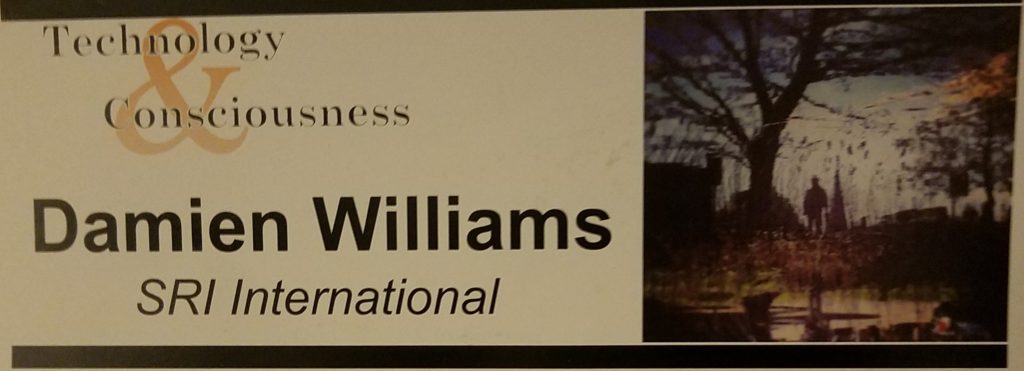So, as you know, back in the summer of 2017 I participated in SRI International’s Technology and Consciousness Workshop Series. This series was an eight week program of workshops the current state of the field around, the potential future paths toward, and the moral and social implications of the notion of conscious machines. To do this, we brought together a rotating cast of dozens of researchers in AI, machine learning, psychedelics research, ethics, epistemology, philosophy of mind, cognitive computing, neuroscience, comparative religious studies, robotics, psychology, and much more.

[Image of my name card from the Technology & Consciousness workshop series.]
An objection to this privileging of sentience is that it is anthropomorphic “meat chauvinism”: we are projecting considerations onto technology that derive from our biology. Perhaps conscious technology could have morally salient aspects distinct from sentience: the basic elements of its consciousness could be different than ours.
All of these meetings were held under the auspices of the Chatham House Rule, which meant that there were many things I couldn’t tell you about them, such as the names of the other attendees, or what exactly they said in the context of the meetings. What I was able tell you, however, was what I talked about, and I did, several times. But as of this week, I can give you even more than that.
This past Thursday, SRI released an official public report on all of the proceedings and findings from the 2017 SRI Technology and Consciousness Workshop Series, and they have told all of the participants that they can share said report as widely as they wish. Crucially, that means that I can share it with you. You can either click this link, here, or read it directly, after the cut.
